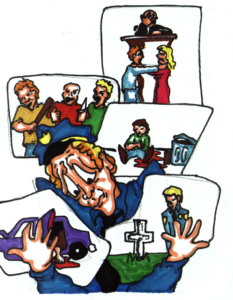Police Psychology | Master Police Coaches:
“Building A Better Cop”
Marla Friedman, Police Psychologist
Born out of the academy, the Probationer is a blank slate. Mega assembly required running the gamut from appropriate deployment of de-escalation and tactical skills training, mental health and suicide prevention techniques, and development of a mentoring relationship, which transitions throughout their career and remains into retirement. This cradle to grave approach (Badge of Life) supports the Officer at every stage and creates and sustains the safest working environment to consistently execute uncompromised law enforcement service delivery.
Many have asked, what is a Master Police Coach (MPC)? It is a Field Training Officer who has exceptional skills in the following areas: interpersonal relationships, jurisdictional geography and orientation, motor vehicle operation and the use of emergency equipment. These of course are some of the critical skills all officers need to know. MPCs excel in these areas and others. Read the rest of this entry »
 Thin Blue Mind / Smokey Heroes
Thin Blue Mind / Smokey Heroes

 without a spouse living with you. What do you do now?
without a spouse living with you. What do you do now? trafficked areas of the country. More than gang related deaths, more than murders in general (although one could argue that a person selling opioids to another is actually committing murder). Yes, 493 people died last year and the trend so far this year suggests we may actually be ready to beat that number. So, I called
trafficked areas of the country. More than gang related deaths, more than murders in general (although one could argue that a person selling opioids to another is actually committing murder). Yes, 493 people died last year and the trend so far this year suggests we may actually be ready to beat that number. So, I called  spend 10 hours on a project you will be twice as far behind than if you only spend five hours on the project.” I think these were meant to be humorous, but I am not exactly laughing about them. In fact, it may have been true back then, but now it is more like work expands to fill any time in the day, including the time set aside for relaxation and comfort, and sometimes even dinner.
spend 10 hours on a project you will be twice as far behind than if you only spend five hours on the project.” I think these were meant to be humorous, but I am not exactly laughing about them. In fact, it may have been true back then, but now it is more like work expands to fill any time in the day, including the time set aside for relaxation and comfort, and sometimes even dinner.